The AFL and Australia Post are inviting up to 30,000 new arrivals to Australia to join in the celebrations this Multicultural Round, thanks to the My Passport to Australian Football campaign.
The AFL and Australia Post are inviting up to 30,000 new arrivals to Australia to join in the celebrations this Multicultural Round, thanks to the My Passport to Australian Football campaign.
As a feature of Multicultural Round, Indian AFL fans in Australia will be able to watch Essendon Football Club’s Sunday afternoon game on FOX Footy with Hindi and Punjabi commentary by PRESSING RED. PRESS RED: EMBRACING INDIA will broadcast the game in the two biggest Indian dialects LIVE from 4.35pm.
To view the PRESS RED: EMBRACING INDIA trailer featuring captain Jobe Watson, click here. Essendon has established itself as the AFL club of choice for Melbourne’s Indian community and PRESS RED: EMBRACING INDIA is another example of the club’s ongoing commitment to grow its relationship with the Indian community.
PRESS RED: EMBRACING INDIA will feature the experienced call team of broadcaster and presenter Manpreet Singh, radio broadcaster Gurtej Singh and special commentary from Essendon captain and AFL Multicultural Round ambassador Jobe Watson as well as a Tom Bellchambers and Alex Browne.
Manpreet Singh said PRESS RED: EMBRACING INDIA was a fantastic initiative by the Essendon Football Club. “I think this is brilliant, and I think this is the best way to welcome new communities into a game like AFL Footy,” Singh said. “It is going to be such an exciting game, not just to watch but commentate it and translate it for our Indian Australians.”
Gurtej Singh called last year’s AFL Grand Final in Punjabi and said he was looking forward to making his TV broadcast debut. “I’m a big fan of Anthony Hudson, I try to copy him and I love his accent, he’s full of energy,” Gurtej said. “I think the Indian fans will love this, it’s excellent, it is a good way to attract other communities to the footy.”
While not fluent in Hindi or Punjabi Jobe said he was looking forward to his role in the special comments chair. “The club has a strong connection with the Indian community and I think this is a great way to not only embrace Multicultural Round but to make AFL more accessible to a large portion of our community who clearly love the game,” Jobe said."I have done a little bit of special commentary work, and I’m sure Alex and Tom will be able to step up and give our Indian fans a rare insight into the game.”
To coincide with Multicultural Round Essendon has also officially launched its own Indian Hub on the club website. The Indian Hub will feature articles, player profiles and videos in Hindi for the club’s passionate Indian Bomber supporters. Essendon has employed an Indian intern, Amandeep Singh, to work with the media team to produce engaging and entertaining content.
Amandeep said the new Indian Hub was a great way to connect with a passionate footy audience. “I’m really excited to be a part of this new initiative taken on by the Essendon Football Club, and I can’t wait to provide the Indian community with an insight into this great footy club,” Singh said. “Given the growing Indian population in Melbourne, and their love of footy, the Indian Hub is a great way to engage with the Indian community, and who knows maybe we’ll see an Indian superstar playing in the red sash one day.”
To find out more about Amandeep Singh and the new Indian Hub, click here. ...
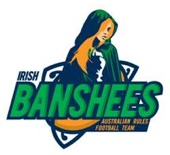 The Irish Banshees are the defending International Cup Women's Division Champions. In 2011 they defeated allcomers including Canada in the Grand Final. Their squad was made up of players from Ireland but also a heavy contingent of Irish players who had been playing in Sydney.
The Irish Banshees are the defending International Cup Women's Division Champions. In 2011 they defeated allcomers including Canada in the Grand Final. Their squad was made up of players from Ireland but also a heavy contingent of Irish players who had been playing in Sydney.
There are almost 2 million people living in Australia who have Irish ancestry according to the 2001 Census, and approximately 250,000 Irish Citizens living in Australia. Australians with Irish ancestry form the second largest migrant group after the 6.3m people with English ancestry.
With strong ties like this, it is no wonder the Banshees will again be right at home when they visit Australia for the IC14, in fact less than half the team are making the long haul journey from Ireland with the rest of the squad already based in either Sydney or Melbourne. Having picked up most players through Australian Gaelic football connections the Banshees already have the building blocks for what will be an impressive line up once again.
Women’s Football in Ireland so far
The squad will have the styling of a Gaelic football team, speed, agility and aggression all playing parts of Banshees code. It should also be noted that 10 of the IC11 champion side will feature in this squad, that experience proving beneficial when it comes down to playing big matches. They will again be captained by Aimee Louise Hazley
With only 11 Irish based players flying in for the tournament the balance of Irish players are from clubs around Sydney and Melbourne who will be joining the squad and who have acclimatised to the game and picked up a far bit of skill. The Banshees have a mix of coaches, assistants and managers on the ground in Melbourne ready to help us out where needed.
Women have only been a part of ARFLI since September 2009 so will have played fewer matches than some of their opposition such as the US and Canada. Marie Keating who played such a significant part in the IC11 tournament will not be playing for Ireland this time around. As the reigning champions their will be no doubt who everyone else will be aiming to beat.
Claire Cunningham has only just pulled out of the squad as she is relocating to Ireland and will not be here for the competition. Claire currently captains the North Geelong football team who are currently on top of the ladder this season. Claire was a part of the IC2011 Banshees and will be missed but we will hopefully see her at the Euro Cup later this year. Melbourne based Oonagh McAnespy will take Claire's place in the team.
The Banshees also have a mix of coaches, assistants and managers on the ground in Melbourne ready to help us out where needed. Andrew Hickey will not coach the group this time round but the identity of the '"top notch coach" lined up to take the group to another level is at this stage a secret to be revealed at a later date.
The team lists four IC11 world team' players who will return to play in their second tournament, these are: Emma Kelly, Gillian Behan, Louise Loughlin and Laura Corrigan.
IC2014 BANSHEES SQUAD:
1 | Aimee Louise Hazley |
2 | Eva Mackin |
3 | Paula Keatley |
4 | Kate Leahy |
5 | Leiha Shrubsall |
6 | Emma Kelly |
7 | Fiona Roarty |
8 | Carolann Cass |
9 | Deirdre Ni Chearbhaill |
10 | Catilin Ni Chianain |
11 | Louise Loughlin |
12 | Laura Corrigan |
13 | Regina Curtain |
14 | Elaine O'Reilly |
15 | Clair Mahony |
16 | Carol McGahon |
17 | Dervla Murta |
18 | Maeve Brogan |
19 | Catherine Collins |
20 | Oonagh McAspney |
21 | Una McKay |
22 | Sandra Ryan |
23 | Christine McCutcheon |
24 | Gillian Behan |
25 | Emma Treanor |
26 | Alice McGahon |
27 | Sarah Rafferty |
28 | Rachel McCann |
Players to watch:
1. Regina Curtin: Regina is a multiple 'All Ireland Senior Football championship' holder 2005 - 2007 and also achieved an 'All Ireland Camogie League title' in 2012.
County: Cork and currently in Koroit, Victoria
Clubs: Milford Senior Camoige Club and Donoughmore Senior Ladies Football Club
Jersey Number: 10
Position: Midfield, forward
Why Play: Love sport, love playing ball, love the team spirit and friendships you make
Aims for IC2014: Be competitive, train hard, win matches
Best Sporting Memory: Winning the All Ireland club camogie Championship with Milford (Cork).
2. Laura Corrigan: Laura competed in the IC2011 tournament, she plays in the VWFL premier league division for Diamond Creek, a team that took the cup home in 2012.
Laura was also selected for the IC2011 World team.
Name: Laura Corrigan
From: Cavan Ireland/Greensborough Vic
Team: Diamond Creek
Jersey number: 1
Position: Ruck/ wing
Why and when I started playing: 2008 as I had always been told I was too rough in Gaelic so I thought Aussie Rules was the game for me.
Expectations for IC: To go back to back.
Best footy memory: Winning the last IC and being named in the top 3 players of the tournament.
3. Cáitlín Ní Chíanáin: Cáitlín plays for the Dublin Angels and holds two Euro Cup titles.
From: Cavan, Ireland
Team: Dublin Angels
Jersey number: 33
Position: Centre
Why and when I started playing: In 2010/2011 I came back from a year in Australia and fancied a go at the game having not tried it there.
Expectations for IC: To grow as a player and ideally bring home some silver wear.
Best footy memory: Beating Switzerland in Euro Cup in Belfast, 2011.
4. Sandra Ryan: Sandra competed in the IC2011 tournament, has represented NSW at state level and she currently plays for the UTS Shamrocks in Sydney.
Name: Sandra Ryan
From: Tipperary
Team: UTS Shamrocks
Jersey number: 10
Position: Wing or half forward flank
Why and when I started playing: Living in Sydney, I got introduced to the game when I played the International rules competition.
Expectations for IC: If it's anything like IC11 I'm expecting a lot. It was an amazing experience, shared with amazing people.
Best footy memory: It goes without saying the IC11 but also winning the Div 2 State Nationals with NSW. Both were in 2011 so the whole year was a blast
5. Clair 'Glam' O'Mahony: Clair currently plays Gaelic footy for Sinn Fein, winners of 2014 club competition last weekend. She is also a 2 time 'All Ireland Championship' title holder.
Name: Clair "Glam" O'Mahony
From: Cork / Melbourne
Team: Sinn Fein Ladies Melbourne
Jersey number:17
Position: forward
Why and when I started playing: to appreciate what a really great sport it is, develop some new skills
Expectations for IC: To win #gohardorgohome /make new friends
Best footy memory: Winning two all-Ireland medals back to back with Cork Seniors Bs in 2008&2009.
Form Guide and Bottom Line
The form line is as good as you could ask for and it will take a mammoth effort for one of the other teams to wrest the title from the Banshees grip.
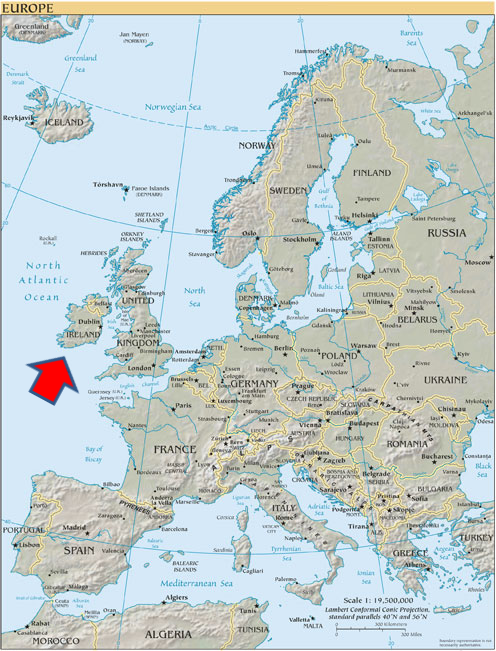
...
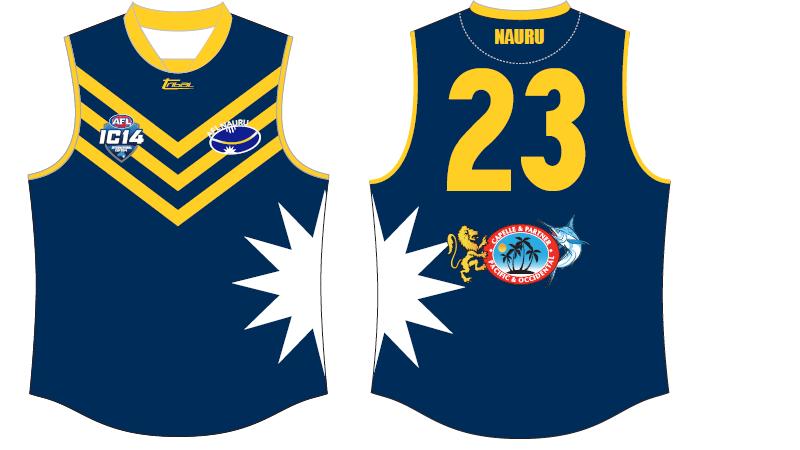 Nauru is a tiny Pacific Island nation that has the distinction of being the only country in the world that has Australian Rules as its national sport (assuming that status is disputed/shared by several sports in Australia). The capital city is Yaren and the population is just 12,000 but the number of Australian football participants is around 300.
Nauru is a tiny Pacific Island nation that has the distinction of being the only country in the world that has Australian Rules as its national sport (assuming that status is disputed/shared by several sports in Australia). The capital city is Yaren and the population is just 12,000 but the number of Australian football participants is around 300.
The the national team is known as the Nauru Chiefs and they are a team just below the top tier at the International Cup and capable of stepping up with an upset.
Road to the International Cup
After finishing IC08 in fourth place Nauru were probably a little disappointed to finish sixth at IC11. Coming up against PNG in their second Division 1 match was probably an unfortunate draw, which saw them play South Africa in the 5th/6th place playoff. On form most would have expected them to win that match but they were narrowly beaten by the South Africans. The Nauru domestic competition is made up of six teams that are based on AFL club names and colors. They are the Bulldogs, Magpies, Cats, Bombers, Kangaroos and Hawks. The Bulldogs have won the last three Grand Finals (and were Premiers and Champions in 2012 and 2013).
In 2011 most of the Nauru team spent time in Australia playing with country footy clubs to acclimatise in the lead up to IC11. This time around they have taken a very different approach. "Instead of sending some players to country Victoria to acclimatise we have decided to keep the whole squad together in Nauru. Our senior competition started early this year and concluded in May so we can select a squad and have them training together for 3 months leading up to the cup. The team bonding has been fantastic and because they have been training together and not scattered like before, the team is gelling very well and has enabled the coaching staff to work on their structures and playing styles much better" Batsiua said.
This time around the team will be coached by Paner Baguga - a local coach who is also the National coach of the junior Nauru team that wond the Oceania Cup last December in Fiji.
Of course the biggest hurdle every team intending to compete at the International Cup is the large cost of bringing the squad and support staff to Australia. The AFL Nauru President told us the "community support has been fantastic - the major fundraiser was supported well by the corporate sector providing all the prizes and we raised over $38,000 in one raffle draw. Other fundraisers like food stalls, bingo games etc. have raised a lot of money as well. Although there is no official majore team sponsor, team jumpers and shorts have been (supplied by and) sponsored by Capelle and Partners and the team tracksuits have been sponsored by Baitsi Laundry. Other sponsors have been important including Our Airline (providing fare discounts), Transfield Services and Digicel Nauru (raffle sponsors).
The Country and Australian Football
Nauru is an island nation in Micronesia in the South Pacific. Its nearest neighbour is Banaba Island in Kiribati, 300 kilometres (186 mi) to the east. Nauru is the world's smallest island nation, covering just 21 square kilometres (8.1 sq mi). With just over 9,265 residents, it is the second least-populated country after Vatican City. Settled by Micronesian and Polynesian people, Nauru was annexed and claimed as a colony by the German Empire in the late 19th century. After World War I, Nauru became a League of Nations mandate administered by Australia, New Zealand, and the United Kingdom. Nauru gained its independence in 1968.
Nauru is a phosphate rock island, with deposits close to the surface, which allow for simple strip mining operations. This island was a major exporter of phosphate starting in 1907 until the deposits ran out during the 1980s. The island also benefited financially when it was an off-shore detention centre for illegal immigrants into Australia for a period recently.
Football was first played by Nauruan schoolchildren in the 1930’s in schools in Victoria, Australia. Among these schoolkids was Hammer DeRoburt. Schools in Geelong and Melbourne in Victoria were popular destinations of Nauruan schoolchildren of secondary-school age. After DeRoburt left Australia, he headed back to Nauru with a couple of friends and popularised the sport in his hometown. Whilst the phosphate mining continued Aussie ex-pats helped to keep the competition alive and prospering.
Internationally Nauru first participated in the 1995 Arafura Games in Darwin, Australia. The team, coached by former VFL/AFL player Mark Yeates finished third, winning the Bronze medal. In 2000, the Chiefs travelled to Queensland to compete in the inaugural Web Sports Cup to compete against teams from Samoa and the Robina Roos from Australia. The Chiefs won both matches. In 2001, the Chiefs again travelled to Queensland winning another two matches, one against the Gold Coast Old Boys. In the same year the Chiefs won the gold medal at the 2001 Arafura Games, defeating the Japanese national side.
At the AFL International Cup in 2002, the Chiefs finished in 8th place, ranking Nauru the 9th strongest Aussie Rules nation in the world. Nauru withdrew from the 2005 International Cup. They attended the 2008 event however due to intense rivalry and violence in the National League, the NAFA (Nauru Australian Football Association) placed strict conditions on player eligibility to encourage a sense of unity, meaning that only players under 23 years old with a clean record were able to represent Nauru in the Cup. A number of members of the national team were placed with clubs in country Victoria to spend a few months developing their skills before the tournament. The team performed exceptionally, being beaten once in the opening pool round by the eventual winners Papua New Guinea, their only loss, to place 5th overall. As detailed above their 2011 tournament saw them perform well but ultimately finish 6th after losing to PNG and South Africa.
In recent years Nauruan youngsters coming through have benefited from the annual development opportunities offered by the AFL in the form of the Oceania Cup and the chance for players to compete at the NAB Under 16 Championships in Australia. "Ït gives our local junior competition targets and incentives and motivates young players to aim for national selection so they can be spotted in the regional competions and win a spot on the Oceania and South Pacific teams. There is a clearer pathway which helps all adminstrators and coaches of local leagues in motivating our young players" Batsiua told us. The benefits of this pathway will no doubt be seen in the younger players now coming into the Chiefs squad.
Strengths and Weaknesses
Strengths must include the football preparation on home soil and team unity that has been built. At IC11 when the team was under the pump against South Africa and PNG it was perhaps here they lacked something and the ability to regroup effectively to challenge again.
In 2008 Assistant Coach Wes Illig described the Nauruan players “all players stand out because of their low centre of gravity and the general carnage left behind them after they have hit the football. We will not have any 6 footers but as the ball is played on the ground 99% of the time height is not all it is cracked up to be and if you have 20 blokes having a go, leaving a physical trail of destruction behind them, teams tend to lose concentration of their game plans and structure”. We expect to see more of this used to effect at IC14.
The Squad
| SURNAME | NAME | CLUB |
1 | ADAM | OTTO | CATS |
2 | ADIRE | SNUKA | BULLDOGS |
3 | AGEGE | LENNOX | BULLDOGS |
4 | AMWANO | JONAS | BULLDOGS |
5 | BATSIUA | MALLINSON | MAGPIES |
6 | BATSIUA | MAVERICK | HAWKS |
7 | BAUI | KAZAAM | MAGPIES |
8 | COOK | RONPADE | MAGPIES |
9 | DAGIARO | CHARLES | KANGAROOS |
10 | DAGIARO | JOHNNY | BOMBERS |
11 | DAGIARO | PILO | CATS |
12 | DANIEL | AYKERS | BULLDOGS |
13 | DEPAUNE | TRENT | CATS |
14 | DETENAMO | MARCUS PAUL | BOMBERS |
15 | FIOLAPE | HESS TEKAI | CATS |
16 | GRUNDLER | DJ | BOMBERS |
17 | GRUNDLER | GERMAN | BOMBERS |
18 | HARRIS | YOSHI | MAGPIES |
19 | HIRAM | MIKEY | KANGAROOS |
20 | IKA | KINGSTON | BOMBERS |
21 | KAMTAURA | TIPUNG | CATS |
22 | MOSES | DONATELLO | BULLDOGS |
23 | MWAREDAGA | DAVE | KANGAROOS |
24 | OPPENHEIMER | KENNETH | MAGPIES |
25 | TEABUGE | TIMOTHY | HAWKS |
26 | TEMAKI | ZAC | CATS |
27 | UEPA | JOSE | BULLDOGS |
28 | UERA | GREIGOR | CATS |
29 | WAIDABU | TIANA | CATS |
Players to Watch
The Dagiaro boys are exciting players. Veteran Johnny Dagiaro played at the IC08 and IC11 tournaments brings his experience while rookies Charles and Ezekiel "Pilo" Dagiaro should provide a lot of highlights for Nauru with their speed, strength and agility.
Form Guide and Bottom Line
Eighth in 2002, fifth in 2008, sixth in 2011. This time the Chiefs are a chance to make it a top 4 finish if they can pull it all together. There is high anticipation and excitement across Nauru for the team to go far in the tournament this time.
A final note
We asked Mathew Batsiua if there were any moves towards women's footy being played in Nauruω He told us "Not at this stage, if we get more volunteers then we can consider it.
 ...
...
The Community Round fixture has been released. Clubs across Victoria were asked to apply to host these matches and the AFL reportedly had a very strong response. So much so that many clubs missed out and subsequently made their disappointment known to the AFL and requested to remain as backups should there be any issues with the selected clubs.
Matches will be played across suburban Melbourne and in regional centres including Bendigo, Ballarat and Geelong. Some top quality matches that will majorly determine who will battle for the top few places in the mens tournament include the NZ vs USA match as Montrose, Ireland vs Nauru at the QEO in Bendigo and PNG vs South Africa at Geelong.
The three Women's Division matches will be played at Plenty, St Albans and Wheelers Hill.
Fixture details below.
| Saturday, August 16 (Community Round) | |||
|---|---|---|---|
| Men's | Ireland v Nauru | 5:15pm | Queen Elizabeth Oval, Corner of View and Barnard St – Bendigo, VIC, 3550 |
| Men's | GB v Fiji | 11:40am | Koonung Reserve, Corner Allen & Furneaux Grove, Bulleen, VIC, 3105 |
| Men's | France v Indonesia | 12:00pm | Diggers Rest Reserve, Plumpton Road, Diggers Rest, VIC, 3427 |
| Men's | PNG v South Africa | 12:00pm | St Mary's Oval, La Trobe Terrace, Geelong (next to Simonds Stadium) |
| Men's | Tonga v Japan | 11:40am | Elgar Park, Corner Elgar & Belmore Rd, Box Hill North, VIC, 3129 |
| Men's | India v Pakistan | 4:00pm | Highgate Recreation Reserve, Corner Cleveland Drive & Grand Boulevarde, Craigieburn, VIC, 3064 |
| Men's | NZ v USA | 12:30pm | Montrose Recreation Reserve, Mount Dandenong Tourist Road, Montrose |
| Men's | Canada v Sweden | 11:45am | Ben Kavanagh Reserve, McDonald St, Mordialloc, VIC, 3195 |
| Men's | China v Finland | 11:10am | Eureka Stadium, Creswick Road, Ballarat, VIC, 3350 |
| Women's | Ireland v USA Liberty | 2:00pm | Plenty Park, Cnr Yan Yean road and Memorial Drive, Plenty |
| Women's | USA Freedom v Tonga | 4:30pm | Kings Park Reserve, St Albans |
| Women's | Canada N Lights v Fiji | 2:00pm | Mulgrave Reserve, Garnett Rd, Wheelers Hill |
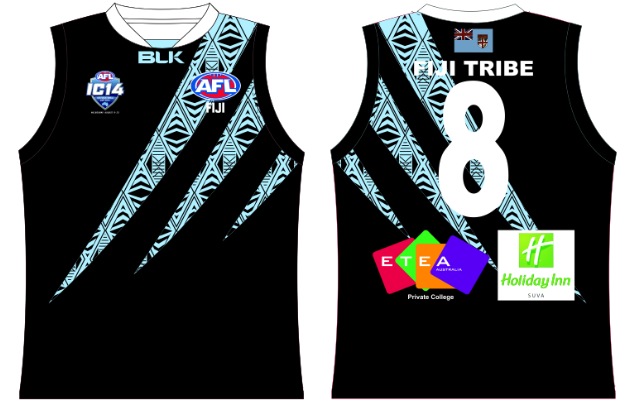
The Fiji Tribe hope to make it one better and take it to the premier squads such as 2011 Premiers Ireland, Pacific neighbours New Zealand and the powerful Papua New Guinea after claiming top spot in Division 2 at IC11.
Fiji Tribe return a more stronger, skillful but most of all experienced side compared to the side which claimed division 2 at IC14. The new look Fiji Tribe in the black and ocean blue strip look set to fire up IC14 and be a very competitive group of young men.
The Finland Icebreakers are readying for their second International Cup campaign this year, after attending back in 2008. With a relatively small local league and a limited pool of players to choose from, the Finns have been battling to finalise their squad for the tournament, with numerous withdrawals due to finances, injuries, work and family commitments.
However, they have also been able to select Finns playing at clubs in Ireland, the USA and Asia, as well as a handful of Finns currently living and playing in Australia, so the Icebreakers are still optimistic about their chances of making a good impression Down Under in 2014.
Mika Kupila spoke to WFN about the team's preparations and goals.
LEFT: Some of the Icebreakers members at the IC08
The country and Australian Football
Finland is the easternmost of the Scandinavian countries, bordering Russia to the east. Its population of 5.5 million is roughly equivalent to the Australian state of Victoria, but Finland's land area is around 50% larger.
The first Finnish national team appeared around a decade ago, with domestic matches beginning in 2007 with the creation of the Finland Australian Football League (FAFL), initially with just two clubs, the Helsinki Heatseekers and Salo Juggernauts. They were joined in 2008 by the Espoo Kangaroos, but the Roos only lasted one season. Since then, the Turku Dockers and Vaasa Wombats have brought the league up to four stable clubs.
There are also active projects to create news sides in the cities of Tampere and Lappeenranta, as well as to resurrect the Espoo Roos.
Previous International Cups
The Icebreakers 2008 campaign saw them finish 14th out of 16 competing nations. Their tournament was marred by injuries and illness taking a heavy toll on the playing squad, although they managed one win against fellow debutant India.
Coaching staff
Coaching the squad this year will be David King, with Anthony McDonald as assistant.
David King has been involved in Finnish footy since its inception back in 2005, playing with the Finnish Squad during their 2007 campaign at the EU Cup in Hamburg, Germany.
He has been the Head Coach of the Icebreakers since 2012, taking the team to the Euro Cup in Edinburgh in 2012 and Bordeaux in 2013. He has also been a regular fixture with the Helsinki Heatseekers since 2011, coaching the team to a Premiership in 2012 and to Runners-up in 2013. In 2014 he has taken more of an officiating role with the league by switching to umpiring in an effort to lift the knowledge and standards of the rules.
Anthony McDonald has 35 years of playing experience in metropolitan AFL with both the Eastern Football League in Melbourne and the South Australian Football Association in Adelaide. He has played in 2 premiership sides, one of which was the first ever for EFL club Mooroolbark as well as numerous other finals appearances at both senior and junior levels. However, McDonald only played one game of domestic footy in Finland and broke his arm.
As Mika Kupila explains, "We had a preselected squad but ultimately it came down to who can afford the trip. The length of the trip also meant that some players needed to priorities family responsibilities over the trip. Injuries to key players also meant that the squad had to changed somewhat."
"We still have five players in the squad who participated in 2008. Their experience will undoubtedly be a key to guide younger and less experienced players in the tournament. We then have four or five players who are currently playing and/or living in Australia."
This year's squad contains only Finns, with Australians involvement limited to coaching and administrative staff.
The squad include includes players based in Australia, Sweden, Ireland and Asia, making it difficult to get the squad together before the tournament for practice matches. The FAFL domestic league also is scheduled for all weekends this summer, excluding the possibility of holding national team training camps.
Players to Watch
Lasse Punttila has been a solid full back for the Icebreakers for many years. Kupila says "He's been a foundation of the national team for years and is one of the strongest defenders and contested markers around. And having a background in American Football he's known to give a good bump as well."
Fredrik Romar, national captain in 2008, has been living and training in Ireland for the last few years. He's also played in Australia in the past and is going to be a cornerstone of our midfield. Kupila says "He is strong, versatile, always goes hard for the ball and delivers it forward cleanly. I believe he'll be one of the best players in the tournament."
The Draw
In the first three rounds, the Icebreakers will face the USA, Sweden and China. The match against China will be in Ballarat as part of the country/suburban round.
According to Mika Kupila, the Icebreakers are fairly happy with their draw, although they'd prefer not to play Sweden again, as they are the one opponent they have the most opportunity to play at home.
"It would've been more interesting to play some team we haven't faced before. Then again, the US will be really good to play against as they are one of the top teams in the tournament," Kupila said.
"USA will be tough, Sweden close and China I believe we should win."
"In 2008, we won one game. I believe our team is much more experienced and well rounded than back then. Being realistic, we're still a small footy nation with only 4 teams, I'm however looking to improve on the 08 result and optimistic that we can win at least 3 games."
"I'd like to thank everyone involved in making this trip come true. We've got a lot of help from locals in organizing accommodation and program for the days off so that the trip is as good as it possibly can be. Couldn't have done it without them."
The Squad
TBC
The Icebreakers at the Euro Cup in Bordeaux, France 2013. Image courtesy of AFL Europe.
...
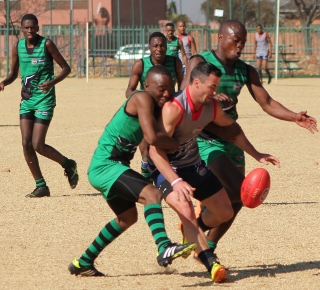
Traditionally the South Africans have played a fast, attacking, but at times chaotic style. A lack of regular club matches has probably deprived them of the chance to consistently experience pressure football every week for a long season, and to practice structured play under real match pressure. But their academy program and the first steps towards a national league are addressing these issues so it will be interesting to see whether the Lions can return to the top four and challenge the best the rest of the world has to offer.
When asked about the likely style the Lions will bring, AFL South Africa National Operations and Local Partnership Manager July Machethe explained "To play entertaining and competitive footy in all of our games".
The Country and Australian Football
The Republic of South Africa is known as the Rainbow Nation as it integrates so much of the cultural spectrum. Estimates vary, but the population is around 51 million and it is steadily, though too slowly for some, building up the standard of living after years of repression. Australian football got its start in South Africa in the 1990s, but then did it tough for some time. But building up to IC08 it became the number one focus for international development, with its relatively cheap costs, abundant population without access to organised sport, and various synergies with business investment. With extra AFL support and a genuine grassroots movement the sport began to flourish.
The game has been branded FootyWILD and grew rapidly in numbers, but over the last few years there has been an effort to consolidate and growth has slowed. But 2011 saw a drop of two spots in their International Cup finishing position and it's also been unclear whether AFL support has been steady or declined. With the rise of international rookies from South Pacific nations and none currently from South Africa one can imagine that there's pressure building to produce some potential AFL talent soon.
A focus has been talent identification and this year's team has been selected from a group that have had dedicated training as an elite squad, starting with a list of 55 in 2011 that has been steadily trimmed.
July Machethe explains, "The Squad has 13 players from last International Cup, with 15 players making their debut for SA Lions. The squad contains 5 players Under 19 with our youngest player being 16 that have come through our development system".
"The players have all been involved (in) the local competitions as well as in the new footyWILD Premier League which is a national competition of 8 clubs. Refer to team list for the names of clubs".
Strengths and Weaknesses
Although very competitive at the last two International Cups, three key weaknesses preventing the Lions from advancing to the Grand Final have been lack of height in key positions and ruck, lack of a structured game and skill errors under pressure. We can expect to see some or all of these areas addressed in 2014.
With the above mentioned elite academy development the South Africans should have a much more settled game plan than in past Cups, but the squad includes very few players with more than one previous campaign to their credit. Such veterans as Steven Malinga, Benjamin Motuba and Mtutuzeli Hlomela are absent, with the exception of Motuba being an assistant coach and listed as an emergency. So Cup experience is down but hopefully the academy has prepared them well, addressing the game plan and skill under pressure issues identified above. The average age of just under 23 is much the same as last time.
The average height of 180cm is up from 177cm, thanks largely to the inclusion of three players over 190cm, compared with none in 2011. If these big men can give their onballers an even share of taps to advantage and clunk an occasional mark it, then the Lions could well be on their way back into the top four.
The Road to IC14
July Machethe explained the long road, both to get to Australia and then once touching down. "There’s been over 5 camps since 2011 which players participated in and we will be camping in South Australia, Jamestown from the 1st – 6th August 2014 including practice matches against Jamestown Peterborough FC & Aboriginal Youth Academy Team. The Jamestown camp was facilitated by Joel Kelly whom is our former Operations Manager and funded by the Jamestown community under the Jamestown Peterborough Football & Netball Club. They also organised for us to play the match on the 6th at Adelaide against the Aboriginal Youth Team which is part of the South Australia Aboriginal Sports Training Academy".
Players to watch
We're told that players to look out for are Tshoboko Moagi No 20 (pictured below), Atang Moshoeshoe No 2 (17 years old ), Vuyislie Sokoyi No 2 (17 years old), Msizi Mkhize No 19 (18 years old), Asanda Funda no 10 (Captain), Thabiso Phakedi No 8, Marco Mongia No 11 (pictured above) and Tshukudu Moagi No 21. Former GWS Giants rookie Bayanda Sobetwa also returns.
Form Guide and Bottom Line
After a meteoric rise the South Africans dropped back a peg at IC11. It's time for the investment and the hard work of the locals to yield at least a top four finish again, maybe better. But then again the teams above them have not been standing still either, with PNG and New Zealand continuing to develop and Ireland with a core group hardened by living and playing in Australia for several years now.
The extra height may be a key to a rise up the ladder but we don't yet know the quality of their talls. The Lions start with new-comers Pakistan then play the tough Tongans before clashing with one of the favourites in PNG. It's hard to see them winning that final match, and the likely outcome of the other pools is that there will be 3 teams undefeated (Ireland, New Zealand and PNG), so to snare the fourth semi-final spot the Lions would need to defeat Tonga and have the highest percentage of all other teams that go 2 wins 1 loss. To achive that they may have to beat Pakistan by as much as 150 plus points. With all due respect to Pakistan, the history of new nations suggests this is possible unless the Shaheens have unearthed some players with Australian experience (we look forward to their preview!).
Overall, expect to see an improved South Africa but top 4 may be just beyond their grasp, in which case they should be favoured to take out Division 1 (the AFL's slightly odd description for teams that are ranked 5th to 12th after round 3).
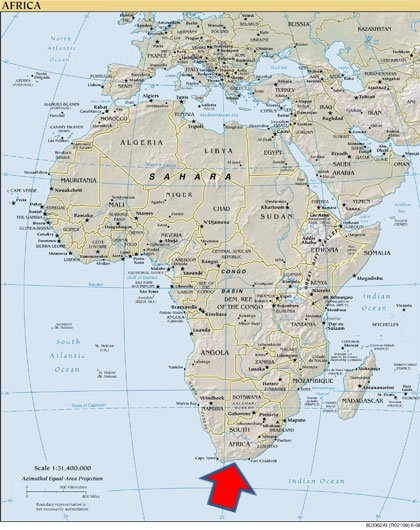
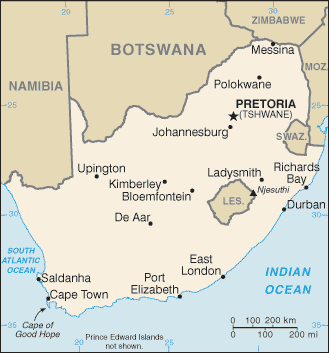
Head Coach: Wayne Miller - Assistant Coach: Benjamin Motuba Team Manager: Phindile Khambule
AFLSA Board: Reginald Mokotedi, Tonie Prins, Cornelius Roodt
Support Team
July Machethe - Kabelo Seoka – Sikhona Vezi – Peter Augustin – Cleopatra Figlan - Benjamin Miller
No. | Given Name | Surname | DOB | Height CM | Weight KG | Local Club |
1 | VUYISILE | SOKOYI | 1996-08-28 | 167 | 65 | BLUE BIRDS |
2 | ATANG | MOSHOESHOE | 1996-11-09 | 176 | 69 | BLUE BIRDS |
4 | AKHOLIWE | FIGLAN | 1995-06-12 | 178 | 65 | BLUE BIRDS |
5 | KARABO ASHLEY | MAROKOANE | 1991-12-23 | 175 | 68 | PLATINUM BUFFALOES |
6 | KHWEZI AUBREY | VELELE | 1997-09-22 | 179 | 73 | BLUE BIRDS |
7 | AYABULELWA HAROLD | MPHOTYE | 1992-02-25 | 174 | 75 | REAL DIVINES |
8 | THABISO RICHARDS | PHAKEDI | 1990-02-22 | 172 | 76 | WARRIORS |
9 | ASANDA (C) | FUNDA | 1989-04-10 | 174 | 66 | REAL DIVINES |
10 | STEVEN RANCHANE | MATSHANE | 1988-04-02 | 175 | 69 | WILD CATS |
11 | MARCO | MONGIA | 1991-04-12 | 171 | 78 | PLATINUM BUFFALOES |
12 | ZOLANI | NYIKI | 1991-03-24 | 176 | 70 | REAL DIVINES |
13 | LUCKY | TYWAKU | 1989-02-03 | 189 | 79 | BLUE BIRDS |
14 | MONTHUSETSI TSHEPISO | MOGAPI | 1991-02-28 | 172 | 61 | WARRIORS |
15 | SIVUYILE | PANI | 1993-09-16 | 185 | 71 | REAL DIVINES |
17 | KHAYALETHU YANDISA | SIKITI | 1985-04-06 | 174 | 82 | BLUE BIRDS |
18 | OBAKENG PRENNEL | PONI | 1989-06-04 | 174 | 60 | WILD CATS |
19 | MSIZI THEMBA | MKHIZE | 1996-01-07 | 186 | 78 | HURRICANES |
20 | TSHOBOKO JOHNVISS (VC) | MOAGI | 1990-08-12 | 174 | 79 | SUPER OWLS |
21 | TSHUKUDU GLADMORE | MOAGI | 1991-10-16 | 182 | 82 | WARRIORS |
22 | THANDO | DLAMINI | 1992-01-10 | 172 | 74 | SUPER OWLS |
23 | BAYANDA | SOBETWA | 1990-03-13 | 183 | 77 | REAL DIVINES |
24 | CAMERON | DALY | 1992-08-15 | 187 | 97 | PLATINUM BUFFALOES |
25 | ANDRIES STEFANUS JOHANNES | DE WET | 1992-02-17 | 179 | 91 | PLATINUM BUFFALOES |
26 | THEMBINKOSI ELLIAS | ZWANE | 1989-08-27 | 186 | 76 | HURRICANES |
27 | JACQUES | TERBLANCHE | 1993-05-05 | 185 | 97 | PLATINUM BUFFALOES |
28 | MALIBONGWE | MLAMLI | 1988-01-05 | 198 | 88 | REAL DIVINES |
29 | JURIE HENDRIK WYNAND | WESSELS | 1991-08-06 | 196 | 96 | PLATINUM BUFFALOES |
30 | CORNE | DUVENAGE | 1992-02-11 | 194 | 103 | PLATINUM BUFFALOES |
3 * | IAN MFANELO | MTHIMKHULU | 1985-10-10 | 171 | 65 | GIANT BEES |
16 * | TEFO BENJAMIN | MOTUBA | 1984-05-12 | 171 | 79 | PLATINUM BUFFALOES |
*Emergencies
...
On 2 August 2014 the small town of Drniš in Dalmatia, Croatia, will play host to a friendly match between Croatia and the Netherlands, a reply of the 2010 Euro Cup final.
With the Croatian Knights unable to attend this year's International Cup, the match will be a chance for the national team to prepare for this year's Euro Cup.
The Drniš town council is excited to see footy for the first time and host an international match, providing transportation, field, dinner and a tour to the nearby national park.
The match will kick off at 6pm. During the game, funds will be raised for parts of Croatia devastated with recent foods. All are welcome to join in the BBQ event after the match.
LEFT: A view of Drniš from a nearby hill. ...
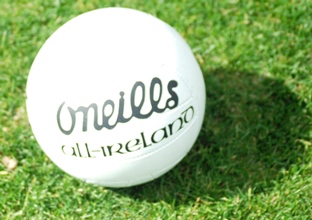 AFL General Manager Football Operations Mark Evans tonight announced Geelong Cats coach Chris Scott would join the coaching panel under Alastair Clarkson for the 2014 Virgin Australia International Rules Series.
AFL General Manager Football Operations Mark Evans tonight announced Geelong Cats coach Chris Scott would join the coaching panel under Alastair Clarkson for the 2014 Virgin Australia International Rules Series.
Scott, who led the Cats to the 2011 premiership and boasts a career winning percentage of 76 per cent with 69 wins from 90 matches in charge of Geelong, will join Fremantle coach Ross Lyon as one of Clarkson’s two senior assistants.
Evans said he was delighted Scott had accepted the invitation to be part of the Australian coaching structure, as the AFL was determined to gather the best possible resources around the playing group in a bid to regain the Cormac McAnallen trophy.
“Chris has done a superb job since taking over as the coach of the Geelong Cats, progressing deep into the finals every season since 2011 while introducing a new breed of young players to keep the club at the top of the ladder,” Evans said.
“A coaching panel of Alastair, Ross and Chris brings together some of our leading coaching minds and we are delighted that each has committed to be part of this year’s series.”
Australia will host Ireland in a one-off Test at Patersons Stadium on Saturday November 22 and all media are welcome to attend.
Tickets for November’s Test match went on general sale last week with prices as follows:
ADULT $65.00 $50.00 $35.00 $20.00 $15.00
CONCESSION $49.00 $38.00 $26.00 $15.00 $11.00
JUNIOR $20.00 $15.00 $11.00 $5.00 $5.00
FAMILY $70.00 $40.00
TICKET AGENT
Ticketmaster
www.ticketmaster.com.au
Phone: 136 100 ...
Today marks 10 years since World Footy News ran its first story.
In fact it was simply a message announcing our arrival and it wasn't until the next day that we ran our first proper footy story: 2004 Season Review - Australian Football League Germany
Since then WFN has published nearly 4700 stories, at a bit over one per day. The most popular in terms of reads is the review of the 2002 International Cup with over 167000 views.
The site was founded in 2004 by Aaron Richard and myself when we saw a void in reporting on the growth of the international side of Australian football. Just as we are now, we were keen to see the sport grow both in Australia and around the globe and wanted to support the international leagues, raise awareness in Australia of their efforts, and help with the cross-pollination of ideas to build a successful world footy community.
Back then there were far less club and league websites, Facebook was in its first full year but just open to US college students, and social media probably only meant journalists having a chat together.
Over the journey we've had the pleasure of growing along with the game's international presence. Numerous writers have come and gone as life takes them on various journeys but we've always been lucky enough to have some core dedicated volunteers to keep the site ticking over. Mentioning names risks hurting feelings but I am keen to acknowledge the great work being done by Troy Thompson, who has been with us for a long time and more recently has stepped up to shoulder the bulk of editing duties and is coordinating our 2014 International Cup effort.
Speaking of which, it has always been a delight for us to get as many staff together as possible to cover the Cups every 3 years and meet some of the wonderful players and administrators from around the world. In a way I've always seen WFN as similar to an international footy club. We aren't quite mainstream, we're pushing the same cause, run on a shoestring budget, we rely entirely on volunteers who will come and go, there's never enough spare time in a day to do everything we want, and in the end the rewards are primarily about trying to enjoy what you do and hope that you've made a difference.
Personal highlights, besides the International Cups, include seeing the rapid growth across South Africa and the South Pacific, the formalizing of AFL Europe, and some of the personal contacts and individual stories along the way. Working with the AFL, sometimes closely, has been interesting and revealing about the way what is perceived as one big shiny monolith is of course really an organization of individuals doing the best they can and still within a budget that is a very small fraction of the entity as a whole.
It's also been rewarding to have had people involved in the World Footy News family go on to play important roles in international footy, such as Jake Anson's involvement in the early days of women's footy in Canada and Ash Nugent's work to keep Indian football alive before going on to co-found the Masala Football Club in Melbourne.
So thank you to everyone who has contributed to WFN over the past ten years, be it one story, one tip off, one shared link, or a 100 stories. We can only exist because of your efforts.
And thank you to all our readers. I hope we've achieved some of our goals and can continue into the future. You can help us by linking to us, be it your league or club website or Facebook, and telling your friends. We also love to get people logging in and commenting on stories. To anyone that thinks they'd like to join the cause or perhaps is retiring from a role internationally but wants to still be involved somehow, feel free to contact us and see if we can use you to keep reporting from Australian football's global frontier.
A few thoughts on the future. This should be the subject of a larger article, but in brief, where might we realistically hope to see the game go over the next ten years? Personally, new countries getting started is always exciting so hopefully we'll see a few more join the sport. South America in particular is a largely untapped area that deserves some more seeding. But just as important is consolidation and I'm very hopeful that we'll see leagues such as in London, Auckland, Ontario, Vancouver and Port Moresby grow to have 8 to 10 clubs with second and even third divisions plus under 18s, and country-wide leagues such as in Germany and France have regional divisions with 6 to 8 clubs each, and some of the US metro leagues blossom into full multiple division leagues of their own. Having several international rookies become genuine AFL stars will also help the cause, as will further AFL investment across the world, and finally I think it's vital that the AFL heavily invests in football in New Zealand with a genuine plan to introduce an AFL club no later than 2030.
What of WFN's future? Well we're not planning on going away, and I hope we continue to grow our readership, continue to have your support, and who knows, maybe one day we'll be a shiny bright professional organization bringing all the international footy news to millions of fans around the wo ...
 International rookie Eric Wallace has signed a new one-year deal to keep him at North Melbourne until at least the end of the 2015 season.
International rookie Eric Wallace has signed a new one-year deal to keep him at North Melbourne until at least the end of the 2015 season.
The 196cm, 102kg former US college basketballer from North Carolina joined the Kangaroos at the end of 2012 and has made significant inroads since switching codes to Australian Rules Football.
Playing as the number one ruckman for VFL affiliate North Ballarat, Wallace has fast-tracked his development throughout the 2014 season.
For the full story and quotes from Wallace click here. ...
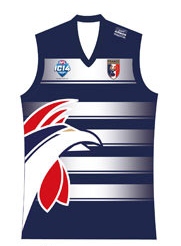 After a successful 2013-2014 season the French Coqs are returning to Australia to take part in their second IC. The team is eager to build on their great results in last year's Axios Euro Cup, where they finished in second place.
After a successful 2013-2014 season the French Coqs are returning to Australia to take part in their second IC. The team is eager to build on their great results in last year's Axios Euro Cup, where they finished in second place.
In 2011, the Coqs impressed the crowds with their performances on and off the field, finishing second of Division 2 and by introducing the world to a very unique celebration. They will no doubt try to improve their luck this year.
The country and footy
Although some games have been played by ANZAC soldier during WW1, Australian football in France only took off in the late 2000's. After a brief stint in the 90's in Paris and Normandy, the first established team started to appear around 2005 with the creation of the Strasbourg Kangouroux. This was followed by teams in the southern half of France a few laters and the first official competition was held in 2008. Since then footy in France has steadily grown and now boasts 7 well established teams peppered throughout the country. In the last couple of years women teams have also made their apparition but they won't be travelling to Australia just yet.
On the international scene, France has been present to most of the major European competitions since the 2005 Euro Cup in London and have enjoy many great success. The last in date, finishing second of the 2013 Axios Euro Cup at home in Bordeaux. The team first travelled to the Australia for the IC11 where they had an impressive run in Division 2 culminating with a second place.
As a testament to the progress of the domestic competition, all the french clubs will be represented in this year IC squad, with only 6 players honing their skills overseas (2 Aus, 2 Canada, 1 USA, 1 England). In addition, a sizeable number of players took part in the previous edition of the IC and will no doubt share their experience with the newcomers.
Strength and weaknesses
France faces a tough start to the competition. They will first face the GB Bulldogs, and then the Irish Warriors. They hope to carry the momentum of their great results at last year Euro cup. They will also rely on the expert advice of Richmond Tiger’s player, Daniel Jackson who got involved with French footy after the IC11.
The cohesion and passion that the French players display on and off the field will no doubt be their greatest assets, and although they are not ready to take on the big teams just yet, they have the potential to create some major upsets.
Players to watch
Midfielders Alban Scheiber and Joevin L'Hotellier, who have been very impressive in recent years during the Euro Cups.
Gregoire Patacq, the towering team captain, who will be returning for his second IC.
2013 AFL Quebec All Star Clement Coste, who will be put to the test in the ruck.
Squad :
ALLIOT-MARTY Yoann
BARBARIA Yvan
BARRANCO Kévin
BERNAD Anthony
CANONICI Jérôme
CASSAVETTI Stephen
COCHET Thomas
COSTE Clément
DANDALEIX Pierre-Etienne
DAVID Adrien
DENERF Jérôme
DEPONDT Thomas
GIL Julien
LABIGANG Pierre-Jacques
L’HOTELLIER Joévin
MARTINEZ Emilien
MAYLIE Sylvain
MENDOZA Valentin
MONDIN Simon
PATACQ Grégoire
PICARD Thibault
RAMDANI Amine
ROSADO Jean
SCHIEBER Alban
TAPIA William
TIEFENBACH Henri
UBEDA Raphaël
VIDAL Florian ...
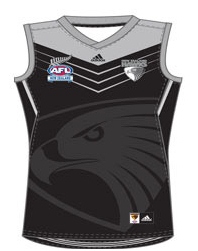 We're closing in on the 2014 fifth instalment of the AFL International Cup and the world's footy nations are gathering for an assault on the Cup. Our previews continue with the 2005 champions and 2008 runner up.
We're closing in on the 2014 fifth instalment of the AFL International Cup and the world's footy nations are gathering for an assault on the Cup. Our previews continue with the 2005 champions and 2008 runner up.
After finishing third to Ireland in 2002 and 2011, winning in 2005 and being the runner up in 2008 to PNG in a wonderful game of footy, NZ continue their trend of sending a younger team to try and regain the title. This squad is very reflective of the work AFL New Zealand have been doing over recent years with their junior age groups.
The squad has benefited from regular international football either in Australia in age group teams or in NZ against touring sides such as the VAFA U18’s and the AIS. It has been very noticeable that although a gap still remains against the Australian sides there is no doubt it is narrowing. With the consistent high level preparation afforded by competition of this level it provides a pathway for junior talent to be recognised quickly as an international sportsman and provide exciting opportunities for their continued involvement.
New Zealand stalwart Andrew Howison will captain the team, and will be supported by a core of senior players who have been part of previous International Cup campaigns. Three players are set to compete in their third International Cup in 2014. David Rattenbury, Matthew Van Wijk and Aaron Harris were all part of the 2008 and 2011 teams. Chris Mundell, Andy Christensen, Michael Gregson, Andrew Howison, Justin Clark, Brendan Clark and Jared Court are returning from the 2011 team, and have been key members of New Zealand Hawks teams in the intervening three years.
At the other end of the scale, a talented group of teenagers will be playing in their first International Cup.
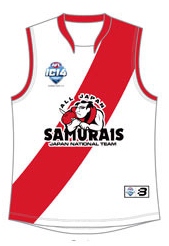 Japan is an island nation in East Asia comprising a stratovolcanic archipelago extending along the Pacific coast of Asia. It lies between 24° to 46° north latitude and from 123° to 146° east longitude.
Japan is an island nation in East Asia comprising a stratovolcanic archipelago extending along the Pacific coast of Asia. It lies between 24° to 46° north latitude and from 123° to 146° east longitude.
There are four major islands, sometimes called the "Home Islands”, (from north to south) Hokkaidō, Honshū (the "mainland"), Shikoku and Kyūshū. There are also 2,456 islands, including Okinawa, some inhabited and others uninhabited. In total, as of 2006, Japan's territory is 377,923.1 km2, of which 374,834 km2 is land and 3,091 km2 water. This makes Japan's total area slightly larger than Norway.
Japan has a population of 127,341,000 people, The female population is the greater, with 65,473,758 women, representing 51.41% of the total, compared to 62,087,731 or 48.75% men. Japan has a high population density, with 337 people per square km..
The Country and Australian Football
Japan has the oldest non-English speaking league in the world that kicked off in 1987 following an exhibition match in Tokyo between Essendon and Hawthorn. The oldest club is Senshu Power, a University based team that was one of the foundation teams of Japanese footy. Currently Japan has nine clubs (with another in the process of forming) with matches played in two regional Leagues. Top League East based in Tokyo has seven teams/clubs, whilst Top League West comprises Osaka Dingoes and Nagoya Redbacks and possible newcomer Hiroshima Hawks.
The Samurai, Japan’s national team has a long history, having played at ‘international level’ since the late 1990’s with participation in the Arafura Games in Darwin, Australia. Japan has contested all the International Cups, the best placing being eighth in IC08.
IC14 Squad
The Samurai squad was announced on3rd June 2014, twenty six Top League East players and two players currently playing in Australia have been named along with a management and support staff of seven.
There is an exciting blend of youth and experience in the squad, roughly half having played at IC’s before, the most experienced player being Michito Sakaki, suiting up for his 5th International Cup. Yusuke Kuno also has experience aplenty for his 4th IC whilst Masaya Nakamura, Junji Tanaka, Jun Sekiguchi ,Hiroyuki Toyamai and Toshiki Matsuhashi are all playing their third International Cup.
The other IC ‘veterans’ are Mitsugu Kazawa, Takashi Kamada, Daichi Tanabe, Kumpei Komura, Hisayoshi Oura and Yuki Akita (3rd IC) who is one of the players currently playing in Australia at Mt. Gambier North, South Australia. Takashi Kamada is also playing in Australia with West Footscray in Melbourne, Victoria.
First timers include Yukihiro Ami, Sohei Yoshida (spent five weeks on scholarship playing at Box Hill North, Victoria recently), Takumi Sato, Yoshharu Sasaki, Takuto Tsuneto, Yusei Hasagawa, Yula Toyoshima, Ryosuke Sato, Kotaku Takasaki, Daiki Kai, Yusuke Matasumoto, Tomokazu Soda, Kohei Sekine, Yohei Kichiraku and Junpei Ito.
Debutant players to watch
Sohei Yoshida: Great young player from Komazawa University Magpies. Played Volleyball at Junior High School and High School but started playing Footy on entering University.
Kotaku Takasaki: still at High school, also plays Rugby at High School. He started to play footy as he wanted to improve his kicking skills and has shown talent and rapid improvement at footy.
The Full Squad
Senshu Powers: Yoshihara Sasaki, Takumi Sato, Kohei Sekine, Tomokazu Soda, Daichi Tanabe, Takuto Tsuneto and Yusuke Matsumoto.
Tokyo Bay Suns: Yosuke Kuno, Kunpei Komura, Katsuyoshi Shimizu, Junji Tanaka, Hiroyuki Toyama, and Masaya Nakamura.
R246 Lions: Yukihiro Ami, Michito Sasaki, Jun Sekiguchi, Kotaku Takasaki, Yuta Toyoshima and Yusei Hasegawa.
Komazawa Magpies: Hisayoshi Oura, Daiki Kai, Mitsugu Kazawa, Toshiki Matsuhashi and Sohei Yoshida.
Shonan Poseidons: Yohei Kichiraku and Kyosuke Sato.
Management and Support Staff are:
Brett Snowden – Coach
Hideki Miyasaka – Manager
Support Staff – Naoki Ishii – Powers, Ai Shichinohe – R246 Lions, Momoko Yasunga – Magpies, Junpei Ito – Senshu and Tatsuya Tomioka – Magpies.
IC14 Round by Round– Japan Samurai
Round 1
Papua New Guinea: WR = 3rd:- Record: 0-2 :-Japan last played Papua New Guinea at IC02 for their 2nd loss to the Mosquitoes the first being at the Arafura Games in 1990. Hideki Miyasake, AFL Japan President believes PNG will be very tough to beat. Five of the IC veterans have been playing together for Tokyo Bay Suns, (last season’s premiers) whilst 3 of the 4 Komazawa Magpies are also IC veterans, these players creating a very experienced core for the team consequently Hideki and Coach Brett Snowden believe this side is stronger than previous Samurai squads. Score: 0-1
Round 2
Pakistan: Not Ranked:- Being a debutant nation to International footy Pakistan are an absolute unknown, although if precedent matters, debutants don’t win too many games (exception being Fiji). Pakistan has, however, had a squad playing in Australia for some time now so they could cause an upset or two. Japan is determined to not take them lightly. Score: 1-1
Round 3
Tonga: WR = 9th:- Record 0-0:- Japan’s most recent wins are against Fiji IC11 and Samoa and India IC08 the Samoa match was somewhat an upset. Tonga can be compared to Samoa and Fiji in athletic ability and style, so if the Samurai bring their best game into this match then success in this match is very possible. Score: 2-1
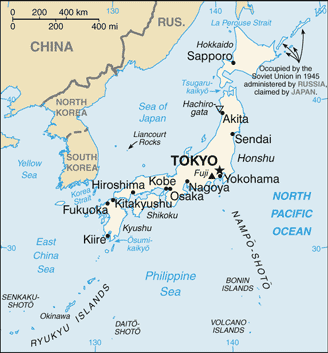 ...
...
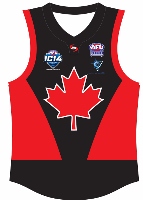 Canada's Northwind are ranked 9th for IC14 and could potentially finish higher depending how they fair against the stronger teams in their pool. With the largest organised league outside of Australia, many would see the Northwind as an underachiever when it comes to the international scene.
Canada's Northwind are ranked 9th for IC14 and could potentially finish higher depending how they fair against the stronger teams in their pool. With the largest organised league outside of Australia, many would see the Northwind as an underachiever when it comes to the international scene.
Whilst being competitive during group stages they have failed to progress further, with their previous Cup finishes being 9th (2002), 7th (2005), 6th (2008) and 9th (2011). With the last 2 years being used to develop a team that can match it with the powerhouses, they are expecting to be competitive in all their matches.
The Country and Australian Football
One of the world's largest countries by area, Canada in some ways shares a lot in common with Australia. Both are wide open lands but with much of them not particularly hospitable and relatively small populations, which are mostly of European descent as well as a significant indigenous population. Both have strong friendship with the USA and are heavily influenced by it, but also have a healthy scepticism towards that country in some respects and enjoy their differences.
Australian Football got its North American start in Canada in 1989 with the Mississauga Mustangs and Toronto Panthers, which lead to the formation of the Canadian Australian Football Association (now called AFL Ontario) and a very strong league in the province of Ontario. Across on the west coast Vancouver (British Columbia) got started in 2001, which has ultimately lead to a successful junior program and more senior clubs. Further provinces (Alberta, Quebec and Nova Scotia) and the capital Ottawa have since begun programs giving the game an increasingly broad base.
Strengths and Weaknesses
Since 2011 Team Canada has employed a new approach in developing and building their national squad. Since 2012, the Northwind now has a solid contingent of players developing and playing around Canada and the world. With their largest base of players in Ontario & Alberta they now source players from all over, with a couple of players in BC, some in Australia and one in Quebec & London, UK.
Preparation has been good with the team training regularly and players being placed on tailored programs since they selected the initial squad last October.
“We knew we needed to get bigger, faster and better execution with the footy. Cody Royle (Assistant Coach) and I have been around the country hand picking the squad for 2+ years.” Commented head Coach, Benjamin Roberts. “We tailored the team to the style we want Canada to play.”
Team Canada has been known for having a tall squad but this time around they are a little more balanced with a range of players who can adapt to the game. The coaches and senior players have worked hard to improve the team structures and develop a direct game plan to help compete with the world’s elite.
Their biggest weaknesses are likely to be their team play and decision making, given some inexperienced players and limited opportunities to play together. It’s extremely hard to gauge how all the team members will play as a unit as it hard having players all over the place.
Players to Watch
Neil Casey - Came out of nowhere, won the AFL Ontario Rookie of the Year and Canadian Best and Fairest last year. Is big, strong and reads the game well.
Nathan Strom - Was the Northwinds best player vs the USA in last year’s parallel cup. Quick, strong and well-rounded talent.
Nathan Singh- Calgary Kangaroo midfielder, team where the runners up to Austin in last year’s USAFL final last year. Strong built midfielder who gets plenty of possessions.
Form Guide and Bottom Line
The Northwind have been seeded 9th by the AFL after the completion of the 2011 international cup and will be looking to improve upon that ranking at this year’s cup. Unfortunately, like the US, Canada rarely play internationals other than against their southern neighbours and so their international play and experience has been very limited. Since 2011 the Northwind have played the US revolution twice in the 49th Parallel Cup and each time has resulted in a loss. Because of this, it hard to gauge how Canada with fair against the top tier teams.
With a good mix of height, speed, grunt and experience it’s all about development and trying to progress too match it with the big boys, Ireland, PNG and New Zealand. A finish between 7th - 5th would be a good result, higher would be a fantastic achievement.
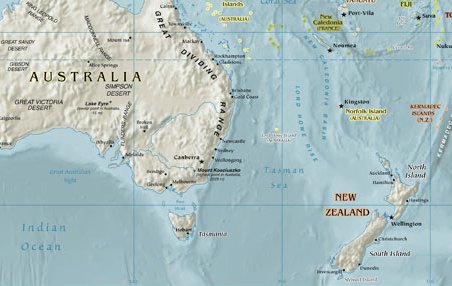 ...
...

James Lang's article about the South African Lion's IC14 warmup appeared earlier this week on The Footy Almanac website.
With the AFL’s International Cup set to commence in Melbourne later this month, the South African side “the Lions” are landing in Jamestown this week for a training camp. Current Jamestown Peterborough Magpies Coach and former North Adelaide and South Australian State of Origin Star Mick Redden will also provide the players with some tutelage.
Last winter saw South African National Team representatives Thembinkosi “Dhino” Zwane and Thabiso Phakedi based in Jamestown, as part of a unique opportunity in an AFL South Africa exchange program titled “Up There Down Under”. As part of the program, they played for the Jamestown-Peterborough Magpies, whilst gaining valuable work experience, particularly on local farms. It was the brain child of former AFL South Africa Football Operations Chief and current consultant to the organisation, Tony Kelly who grew up in Jamestown and still has much family residing in the area.
As part of the camp, the players will arrive in Jamestown Friday night, before heading North to Orroroo the following day to watch the clash between the Roos and the Magpies. That evening, a community event will be hosted at the Jamestown Football Complex, with teas and other catering available. It will offer people a chance to grab an insight in to the team’s journey and the growth of Australian Football in the Rainbow Nation.
Read the rest of the story on The Footy Almanac site here. ...
 Four internationals have been invited to this year’s NAB AFL Draft Combine in Melbourne. Americans Marvin Baynham and Evan Bruinsma will be hoping to follow in the footsteps of Eric Wallace, Patrick Mitchell and Jason Holmes who were signed as International Rookies after attending the Draft Combine.
Four internationals have been invited to this year’s NAB AFL Draft Combine in Melbourne. Americans Marvin Baynham and Evan Bruinsma will be hoping to follow in the footsteps of Eric Wallace, Patrick Mitchell and Jason Holmes who were signed as International Rookies after attending the Draft Combine.
Baynam is 6'7" and 210 lbs and played college basketball at the Georgia Southern Eagles. The 22 year old recorded 344cm for the Vertical Jump, 2.82s for the 20m Sprint and recorded 8.14sec in the agility test at the L.A Combine.
Bruinsma is a 21 year old college basketballer who played with the Detroit Titans and stands at 6'8" and weighs in at 214 lbs.
Two potential Irish converts in Connor McKenna and Paddy Brophy (pictured) have been invited after testing well at the combine held by Tadgh Kennelly in Ireland at the end of last year and impressing in the AFL Europe matches played as part of the AIS tour of Europe.
Brophy is 6'2" and 13st 5lbs at 20 years of age and plays club Gaelic football with Celbridge GAA.
Conor McKenna is another Gaelic footballer who has huge wraps on him and plenty of AFL clubs with an interest in him after he appeared a natural in the trial match showing off his speed and kicking four goals. At the combine he recorded 7.85 seconds for the agility run and 14.10 in the beep test.